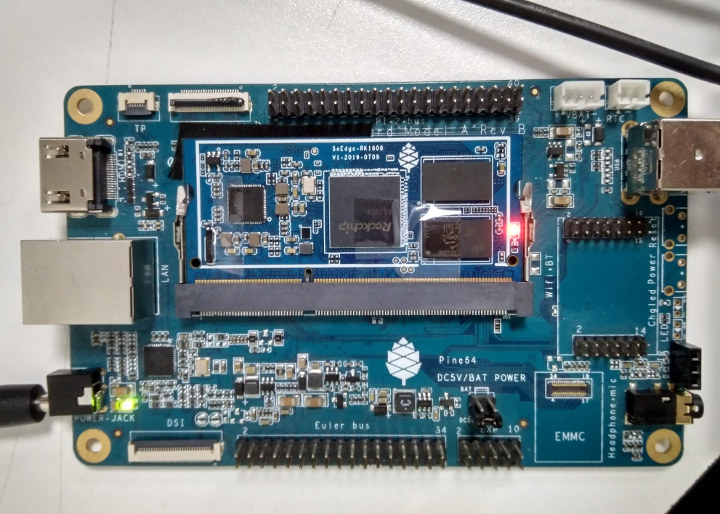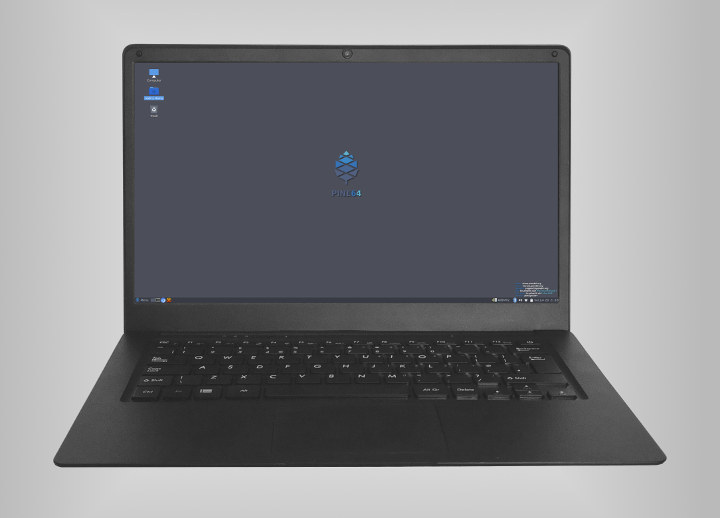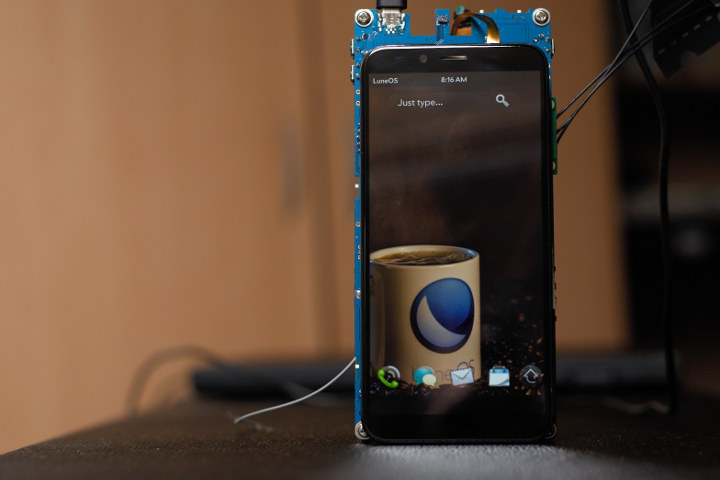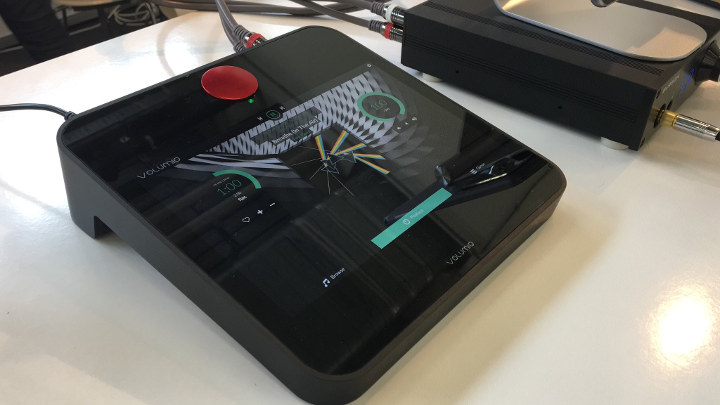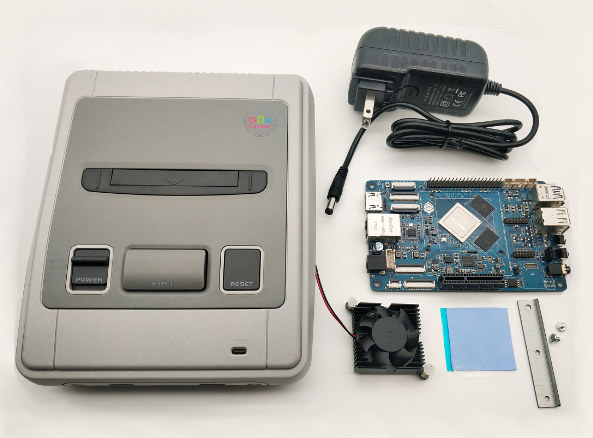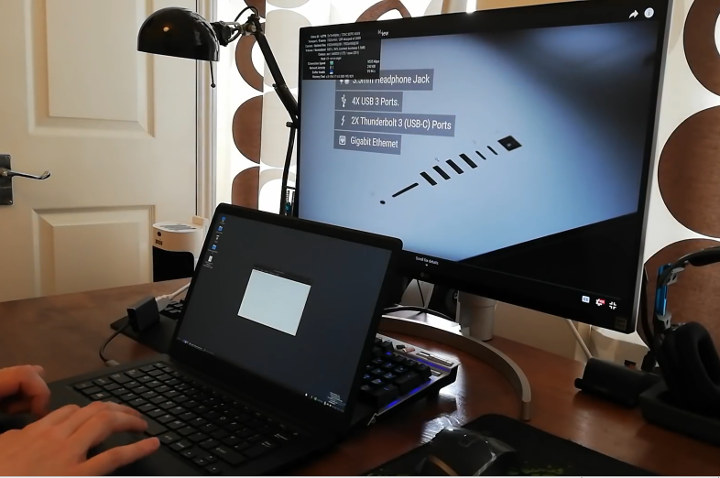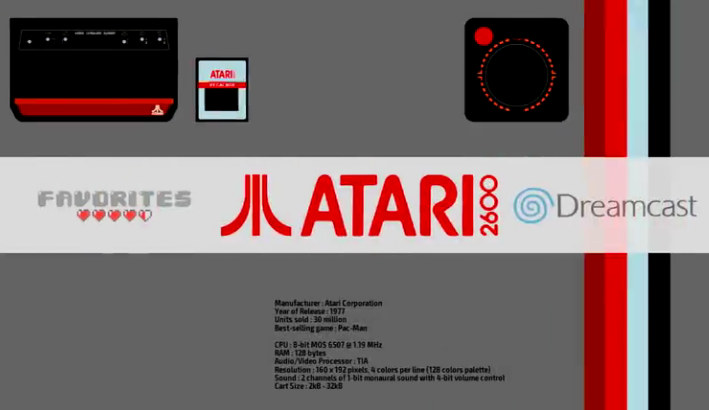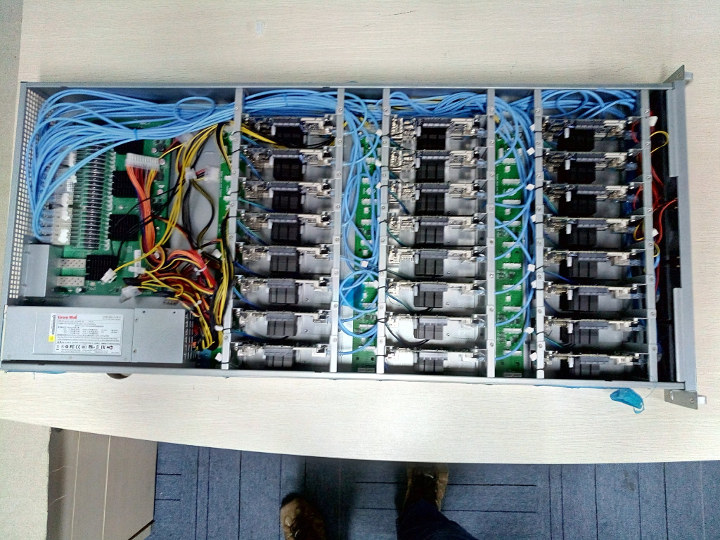A few weeks ago, Ameridroid reported Pine64 would soon launch SoRock and SoEdge systems-on-module, but at the time there was virtually no info except SoRock would be likely based on either RK3328 or RK3399 and work on the existing Clusterboard, while SoEdge would be an AI Neural module for Artificial Intelligence tasks, with up to 3 TeraFLOPS of performance. I did not write about it at the time, simply because there was so little information, but this morning I’ve just received some photos of SoEdge-RK1808 module fitted to a baseboard that looks to be SOPINE Model “A” carrier board. SoEdge-RK1808 SoM Let’s try to derive the specifications from the photos even though some components appear to be blurred out or just unclear: SoC – Rockchip RK1808 dual-core Cortex-A35 processor with 3.0 TOPS NPU (Neural Processing Unit) System Memory – 2GB RAM (2x 8GBit Micro DDR4-2400) but limited PC-2133 Storage – […]
PineBook Pro Arm Linux Laptop now up for pre-order for $199.99
Pine64 unveiled a Pinebook Pro laptop prototype at FOSDEM 2019 as an update to the original Allwinner A64 powered Pinebook laptop, but instead of just being a toy to play with, Pinebook Pro aimed to be used as a daily driver thanks to a relatively powerful Rockchip RK3399 processor combined with 4GB RAM, and 64/128GB storage, and equipped with a 14″ Full HD display all for a target price of $200. Last May, we noticed some good progress on the software development side with a demo showcasing Ubuntu & Debian with MATE desktop, 4K video playback, 3D graphics acceleration, and USB-C video output. The good news is that Pinebook Pro has just launched and can be pre-ordered for $199.99 on Pine64 store. [Update: If you are an existing forum member, you may want to redeem your coupon here] Pinebook Pro laptop specifications: SoC – Rockchip RK3399 big.LITTLE hexa-core Arm Cortex […]
Software Development on Librem 5 and PinePhone Linux Phones is Progressing Nicely
Several Linux phones are expected this year including Purism Librem 5 and Pine64 PinePhone. Both companies have sent phone development kits out to developers a few months ago, and we are starting to see some nice progress for both phones. What made me write this post is an update from Purism comparing the boot time on Librem 5 running PureOS Linux distribution without specific optimizations yet, and HTC One Android smartphone. Librem 5 smartphone devkit takes 13 seconds to get to the lockscreen, while the Android phone takes over 40 seconds. Fair enough, most people won’t boot their phone often, but it still nice to know it won’t take long to turn on the phone from power off state. They also posted a progress report at the end of May saying calls are now working with better audio quality, fixed various issue with messaging in Chatty, work on Linux […]
Volumio Motivo is a Gorgeous Audio Streamer Powered by SOPINE A64 SoM
Volumio is a well-known Linux based open source music player for Raspberry Pi, UDOO, Cubox-I, Beaglebone Black, and other single board computers. Some companies even made audiophile boards with support for Volumio including Khadas Tone high-resolution audio board for VIM/VIM2 SBC’s, and the tiny VoltaStream ZERO following Raspberry Pi Zero form factor. But Volumio team has decided to make their own hardware with Motivo, an awesomely looking audio streamer designed in collaboration with Yottamusic engineering firm, and Design Narratives industrial design company. Motivo was introduced at High-End Munich, the world’s biggest Hi-Fi trade fair, and Pine64 posted some photos in a tweet claiming it was powered by their SOPINE A64 system-on-module. The full details about the device have not been published at the time of writing, but we can still derive some of Volumio Motivo specifications and key features from the photos and a few bits of public information: System-on-Module […]
Roshambo Retro Gaming Console Kit Features Rock64 or RockPro64 Board
Recalbox, Lakka TV, Retro Arena, and Batocera are some of the retro gaming distributions optimized to run on development boards. You can install those by yourself, and enclose the board is any case, but if you want something more fancy, Cloud Media is now selling Roshambo retro gaming kit based on Rock64 (RK3328) or RockPro64 (RK3399) SBC’s. Roshambo and RoshamboPro retro gaming kits are compatible with respectively Rock64 and RockPro64 boards, come with a shell with carrier board, power supply, cooling fan (Pro model only) and support cables. The kits support 256GB or 512GB SSD cartridges provided by the company, and optional game controllers with analog triggers and buttons are also available for purchase. Pine64 Rock64 / RockPro64 boards are compatible with Recalbox, Lakka TV, Retro Arena, and Batocera distributions, but bear in mind ROMs are not provided, so you’d have to install your own, or play free games only. […]
Pinebook Pro Arm Laptop Video Demo
Pine64 first revealed working on Pinebook Pro Arm Linux laptop at FOSDEM 2019 back at the end of January. The first Pinebook laptop had limited hardware resources, and as such was meant for simple tasks, but Pinebook Pro equipped with Rockchip RK3399 processor, 4GB RAM, 64GB to 128GB flash, and a 14″ Full HD display is designed to be used as your main laptop. That means everything needs to work from 3D graphics acceleration, to hardware video decoding, and USB-C video output. Lukasz Erecinski very recently shot a demo of the laptop in action, and everything looks very good, meaning the laptop should be come available soon. You can watch the demo further below, but if you are in a rush here’s what has been tested and works: Ubuntu & Debian with MATE desktop 4K video playback 3D graphics acceleration for games (Quake demo) 3D graphics acceleration in Chromium web […]
Batocera.Linux OS Combines Kodi & Retro Gaming for Raspberry Pi & ODROID Boards
There are already several ways to run retro games on development boards, with for example RetroPie, and derivatives like RetrOrangePi, Lakka and Recalbox. Batocera.Linux is another option that I had never heard about so far, and works on PCs, as well as Raspberry Pi and ODROID boards, with ODROID-N2 support having been added very recently. batocera.linux operating system can easily be run from a USB flash drive on your computer without altering your existing OS, while it will boot from a standard microSD card on Raspberry Pi and ODROID boards. Beside retro-gaming support, the OS also includes Kodi media center for playing videos, or listening to music. You may even play games in it since retro-gaming support was added in Kodi 18. The partial compatibility table above shows all platforms have a different level of support, and for Intel hardware support more emulators than Arm based boards. The Orange arrow […]
PINE64 Plans to Move their Website on a 24-node RockPro64 Cluster
Boards’ clusters are always fun to see, and PINE64 has shared pictures of two RockPro64 clusters with respectively 48 and 24 boards neatly packed into partially custom enclosures. The 48-node cluster will feature a total of 288 cores, including 96 Arm Cortex-A72 cores and 188 Cortex-A53 cores, as well as 192GB of LPDDR4 RAM. Low cost development boards may be seen as toys by some, so it’s interesting to learn that PINE64 plans to move their complete website infrastructure including the main website, a community website, forums, wiki, and possibly IRC on the 24-node cluster, while it seems the 48-node cluster may be used for their build environment. The company has just completed the assembly of the clusters, and did not disclose the full technical details just yet. However, a progress report may be written in due time. Once the migration is done, and everything works as it should, it […]


